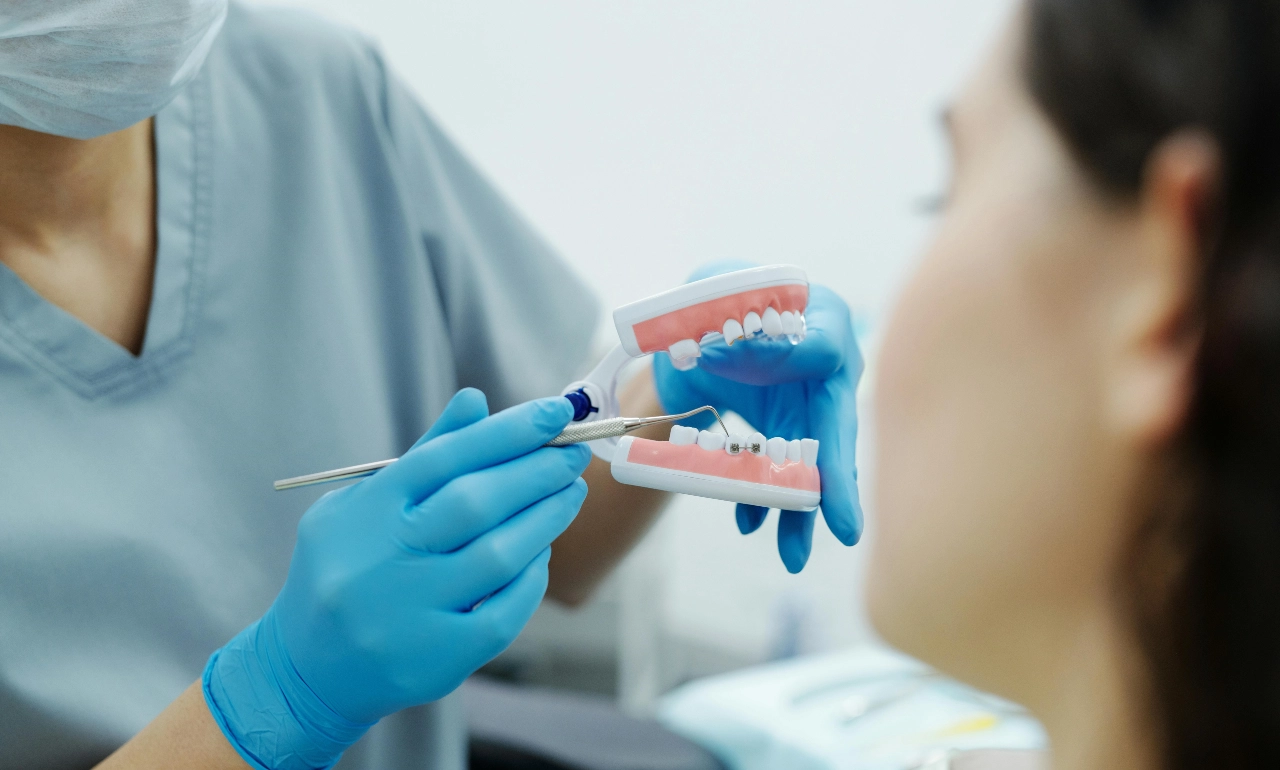Water plays an important role in maintaining overall health, including oral health. However, due to many different causes, dehydration is a common problem in modern society. In addition to negative impacts on body health, lack of water also has significant effects on oral health.
Risks and Symptoms of lack of water to the teeth
Dehydration can lead to a variety of dental problems, from dry mouth to gingivitis to even tooth decay. Here are three main problems that dehydration can cause for oral health.
Dry Mouth
This is the most noticeable manifestation of dehydration. Saliva plays an important role in protecting teeth by:
- Cleans the mouth: Saliva helps remove food scraps and plaque, preventing bacteria from growing.
- Neutralizes acid: Saliva helps neutralize acids produced by acidic foods and drinks, protecting tooth enamel from erosion.
- Prevent tooth decay: Saliva contains natural antibacterial substances that help kill bacteria that cause tooth decay.
When the body lacks water, the salivary glands produce less saliva, leading to dry mouth. This increases the risk of developing cavities, periodontal disease, and oral infections.
Gingivitis
Lack of water can cause gums to become dry and vulnerable. This creates conditions for bacteria to attack the gums, leading to gingivitis, bleeding gums, and even periodontal disease. If not treated promptly, gingivitis can lead to permanent damage to the tooth structure and surrounding soft tissue.
Caries
Dehydration can also cause a decline in the tooth’s ability to repair itself. Saliva contains important minerals such as calcium and phosphorus, which play an important role in maintaining tooth enamel and preventing the formation of cavities.
When the body lacks water, the amount of this mineral in saliva decreases, leading to the weakening of tooth enamel and paving the way for the growth of bacteria that cause tooth decay.

How to prevent dehydration from affecting your teeth
To avoid oral health problems caused by lack of water, you can apply the following ways to maintain the necessary amount of water for your body:
- Drink enough water: According to recommendations from the World Health Organization, adults should drink about 2-2.5 liters of water per day. This will help your body maintain the necessary amount of water and also support dental protection.
- Check the condition of your gums: It is important to regularly check the condition of your gums. If you see signs of gingivitis or symptoms such as bleeding gums, see your doctor for timely advice and treatment.
- Use oral care products: Choose toothpaste and mouthwash that contain fluoride and natural essences that help protect and regenerate tooth enamel. You can also use xylitol – an ingredient found in oral care products that has antibacterial properties and prevents tooth decay.
- Avoid acidic drinks: Drinks that are high in sugar and highly acidic such as soft drinks, coffee, tea and alcohol can harm tooth enamel and increase the risk of tooth decay. Therefore, limit drinking these drinks and always remember to chew thoroughly when eating to help stimulate the body’s natural saliva production.
Lack of water and bacteria harm teeth
Bacteria are the main cause of serious dental problems such as tooth decay and gum infections. When the body is weak, the body’s immune system does not work effectively, allowing bacteria to survive and grow in the mouth. When there is an imbalance in the amount of water in the body, bacteria will find ways to grow faster and can cause problems such as tooth decay and gingivitis.
Dehydration and risk of gingivitis
Gingivitis is one of the most common dental problems today, and lack of water can make the condition worse. Saliva plays an important role in removing dead cells and plaque, helping to keep gums clean and healthy. Lack of water leads to less saliva, which in turn allows bacteria to multiply and grow, causing gingivitis and symptoms such as bleeding gums and periodontal disease.
Tips for maintaining oral health when dehydrated
To maintain oral health when there are signs of dehydration, you can apply the following tips:
- Drink enough water: This is the most important thing to maintain the necessary amount of water for the body and protect oral health.
- Eat fruits and vegetables: These foods have high water content, helping to increase the amount of water in your body.
- Limit drinking acidic drinks: As mentioned above, highly acidic drinks such as soft drinks and coffee can be harmful to oral health. If unavoidable, you should use straws to reduce their direct contact with tooth enamel.
- Proper oral care: Brush your teeth at least twice a day and use dental floss to clean the spaces between your teeth. This helps remove plaque and bacteria, protecting tooth enamel from harmful effects.
Conclude
Above is information about the relationship between lack of water and oral health, as well as how to prevent and preserve tooth enamel in a state of lack of water. Maintaining the necessary amount of water for the body is not only good for overall health but is also important for oral health. Pay attention to drinking enough water every day and practice proper oral care to keep your smile bright and your teeth healthy.





